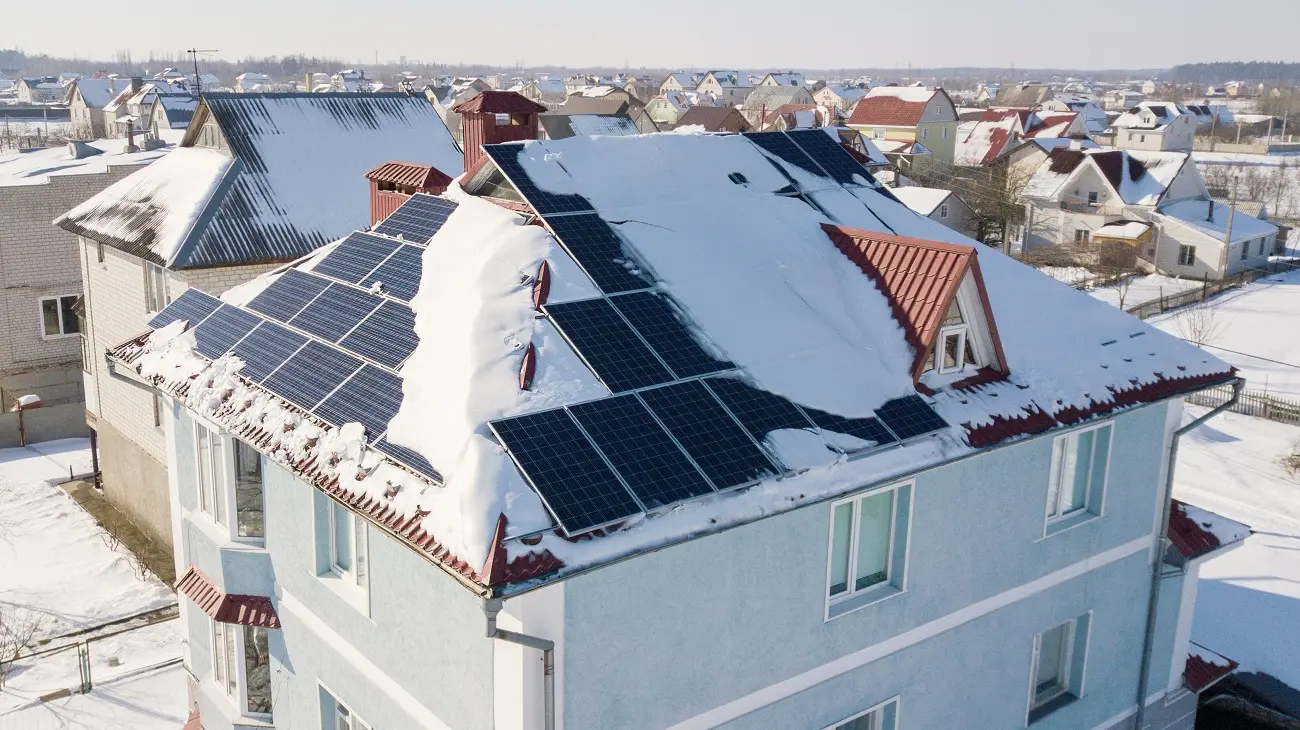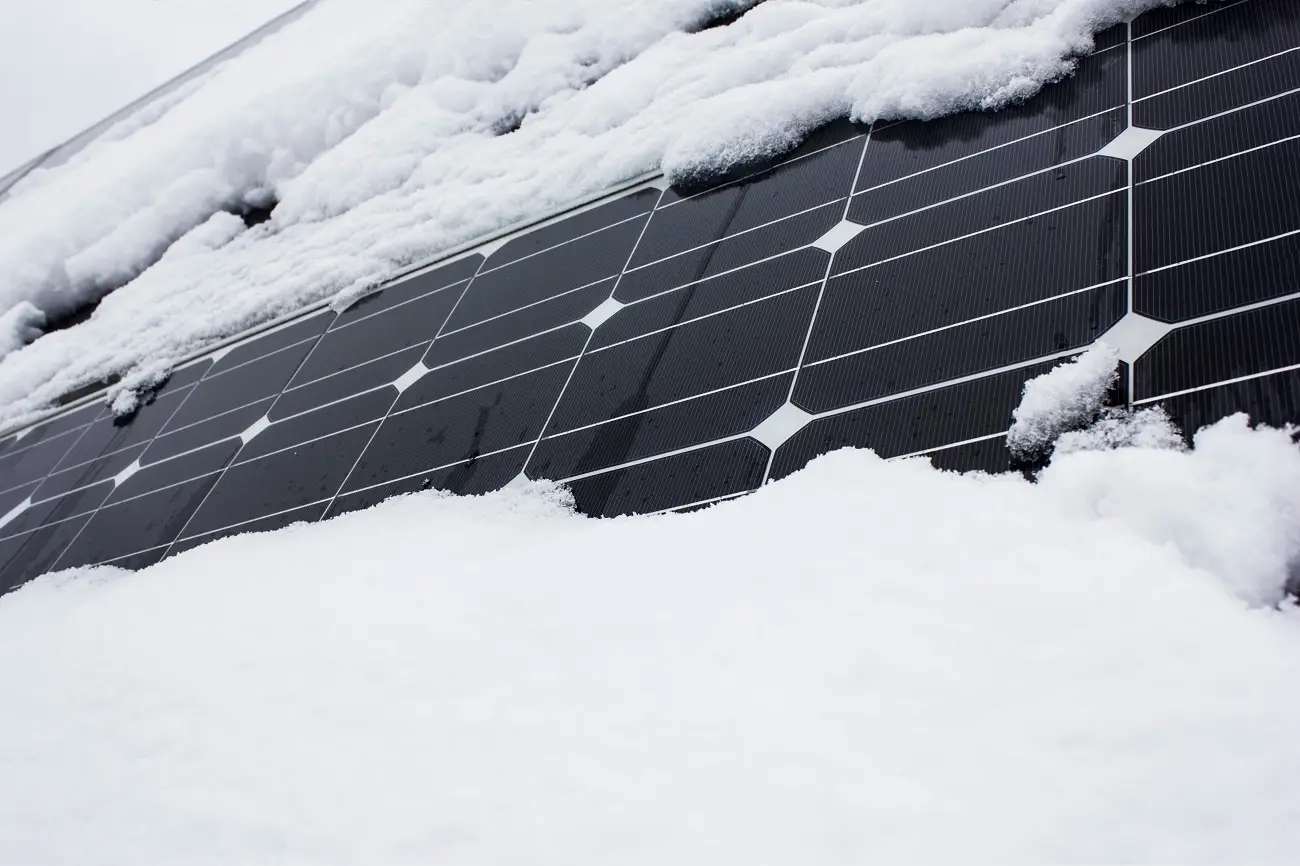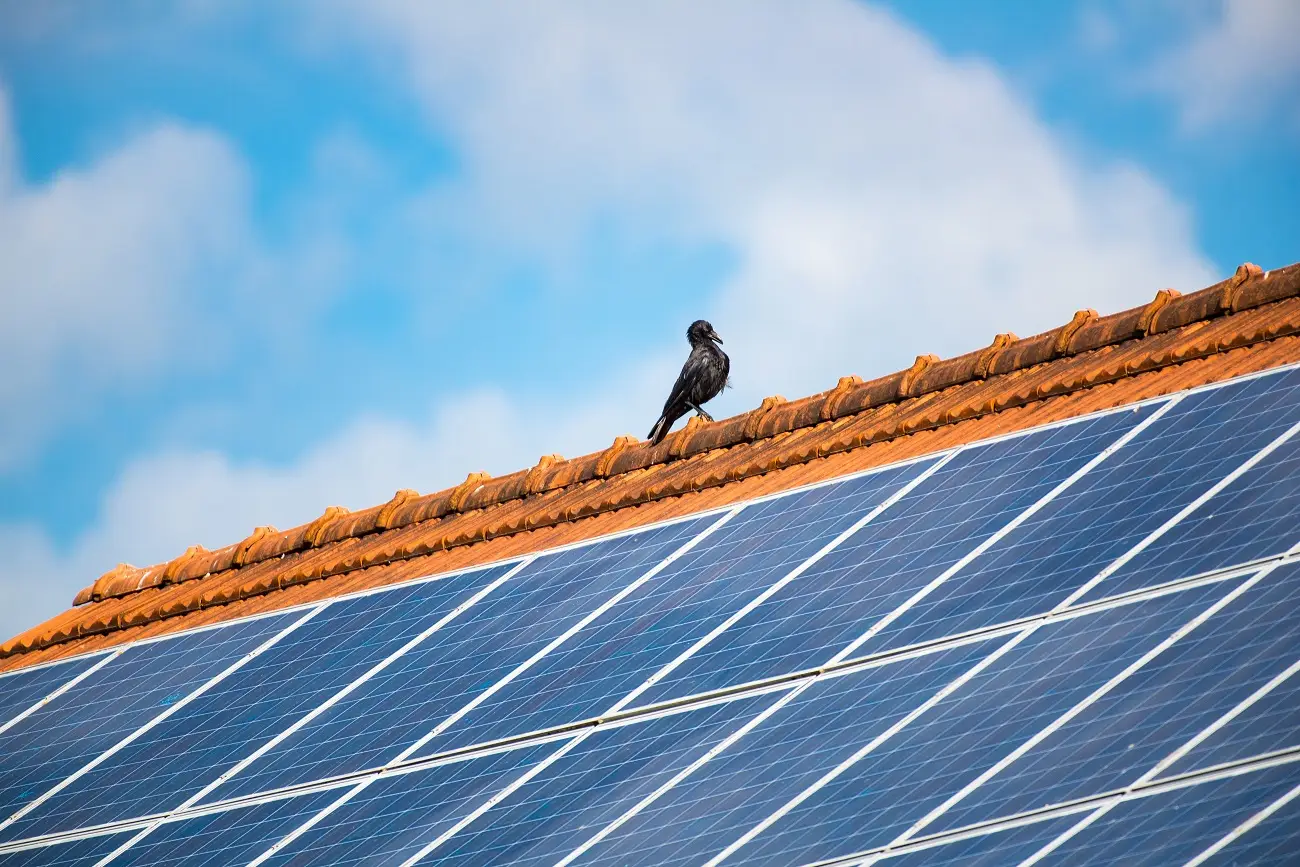As winter rages on in New Jersey, the question arises: how do solar panels work in winter? How is their energy output compared to summer? Our team at Solar Me will walk you through the effects of snow and cloud cover on solar efficiency, the necessity of snow removal, and the feasibility of installing solar panels during the winter.
How Do Solar Panels Work? – Heat vs. Sunlight
A common misconception is that solar technology depends on the sun's heat; it’s actually sunlight that’s doing the heavy lifting in solar energy generation. That’s how solar panels remain functional even when the mercury dips. Solar cells, or photovoltaic (PV) cells, are adept at converting sunlight directly into electricity, no matter the ambient temperature.
These PV cells are made of semiconductor materials, typically silicon, which are designed to absorb photons from sunlight. When these photons hit the solar cells, they knock electrons loose from their atoms, creating a flow of electricity. This process generates direct current (DC) electricity, which is then transformed into alternating current (AC) by an inverter for home use. The inverter is a critical component, as most household appliances and the electrical grid operate on AC electricity.
Solar Power Generation Winter vs. Summer

Solar power generation does exhibit seasonal variations, with notable differences in output during winter and summer. This fluctuation is influenced by several environmental and astronomical factors.
In the summer, solar panels benefit from extended daylight hours, with the sun positioned higher in the sky, resulting in more direct sunlight and consequently, higher energy production. The longer, sunnier days of summer are ideal for a solar energy system, allowing them to capture and convert a substantial amount of solar energy into electricity. This period often sees solar installations performing at their peak, harnessing clean, renewable energy efficiently.
In contrast, winter brings a set of challenges that can impact the performance of solar panels. The most evident change is the reduction in daylight hours. Shorter days mean there’s less time for solar panels to generate electricity. Additionally, the sun's lower trajectory in the sky during winter months leads to a decrease in the intensity of solar radiation reaching the panels. This lower angle can diminish the effectiveness of solar energy capture.
Not to mention, winter weather conditions, such as snowfall, ice, and prolonged periods of overcast skies, can obstruct sunlight from reaching the solar panels, further reducing their efficiency. While modern solar panels are engineered to withstand these harsh conditions and maintain functionality, their energy output is inevitably lower in winter compared to summer months.
This seasonal disparity in solar power generation underscores the importance of considering geographical and climatic factors when installing solar panels. Optimizing the position of panels and removing any obstructing tree cover to maximize sun exposure throughout the year, and choosing high-efficiency models suited for varying weather conditions, can help mitigate the impact of seasonal changes. Overall, despite these fluctuations, solar power remains a reliable and sustainable energy source in the winter.
Will Snow and Cloud Cover Affect Solar Panels?
Snow and cloud cover influence the performance of solar panels, but their impact is often manageable. Solar panels, by design, are relatively efficient at dealing with snow. The panels are typically installed at an angle to facilitate the natural sliding off of snow as it melts. Moreover, the surface of solar panels is smooth, which helps reduce the adherence of snow and ice. When sunlight reaches the panels, even if partially, it initiates a heating process that aids in melting the snow to clear the surface more quickly. While heavy snowfall can temporarily reduce the energy output by obstructing sunlight, this is usually a short-lived issue.
Cloud cover presents a different challenge. On overcast winter days, the solar panel output diminishes due to the lack of direct sunlight. While solar panels can still generate electricity from diffused sunlight on cloudy days, this process is considerably less efficient compared to sunny conditions. This means that in regions with prolonged cloud cover or frequent winter storms, solar energy output can be noticeably reduced.
Despite these challenges, it's important to note that the overall impact of snow and clouds on solar energy systems is typically not severe enough to negate the benefits of solar power. In regions like New Jersey with strong solar incentives and programs, even with fewer sunny days, the cumulative energy production across seasons can still be substantial. Additionally, the reflective properties of snow can sometimes enhance light availability which offers a slight compensatory effect for the reduced direct sunlight.
Do You Have to Clean Snow Off of Solar Panels?

The topic of cleaning snow off solar panels is met with varying opinions, but most experts and solar panel manufacturers advise against it. Solar panels are engineered to endure the additional load of heavy snow and the low temperatures of winter, so manual intervention is usually unnecessary. Additionally, the risk of damaging the panels during the cleaning process is a significant concern. Attempting to remove snow can lead to scratches or other damage to the panel's surface, potentially resulting in expensive repairs or even a voided warranty.
If you’re really eager to maximize your solar panel's efficiency, you can use solar panel snow removal tools or devices to clear the rooftop. But we recommend being patient!
Is It Worth Installing Solar Panels in New Jersey?
Installing solar panels in New Jersey is definitely a worthwhile investment. While it's true that the state experiences fewer peak sun hours in the winter months compared to summer, New Jersey still receives a substantial amount of sunlight year-round.
This consistent solar exposure makes it feasible to generate solar power even in colder months. But to make sure your solar system is effective in low-light conditions, it’s better to choose solar panels of high quality. Also, it’s important to remember that the number of panels, their positioning on the roof, and the potential for shade from buildings or trees are important factors to consider. An optimal installation that’s tailored to the specifics of the location and designed to maximize sunlight exposure can significantly enhance the system's performance.
Conclusion
In conclusion, solar panels in New Jersey can indeed be effective even in the winter months. While challenges like snow and reduced daylight exist, the technology is designed to harness sunlight, not heat, making it a viable option year-round. Maintenance, such as snow removal, is minimal and manageable.
If you're considering solar panels for your New Jersey home or business, winter should not be a deterrent. For more information or to start your path to energy independence, reach out to our local solar experts at Solar Me.





